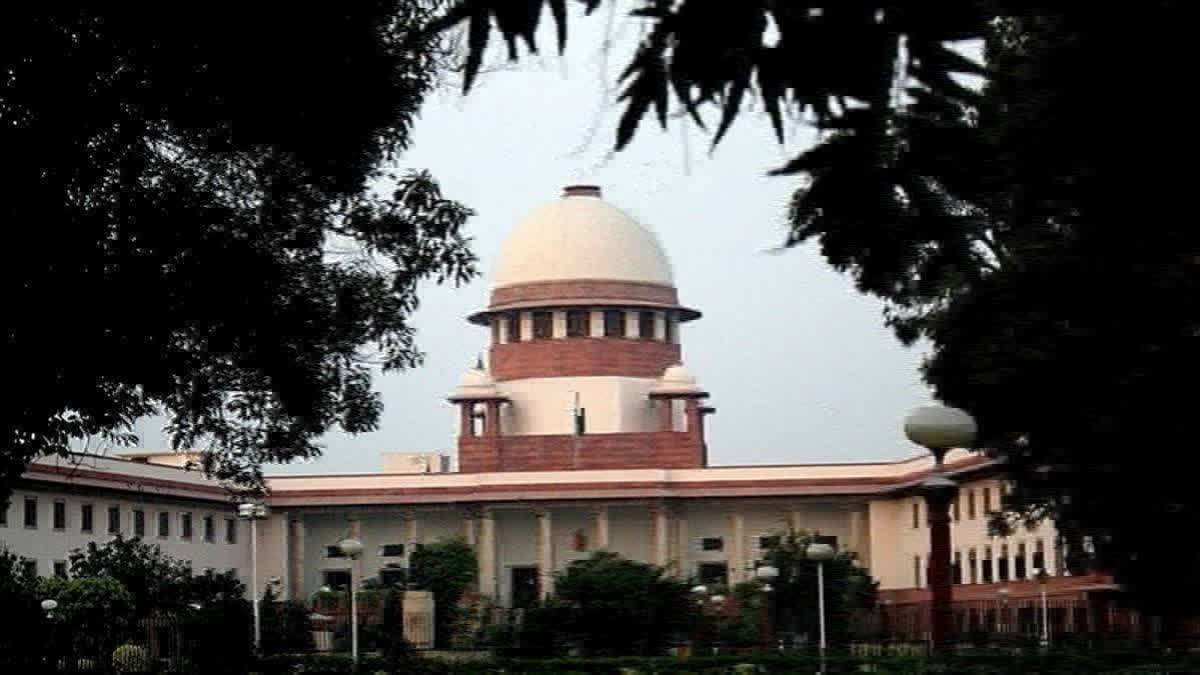New Delhi: The Supreme Court on Monday said that grant of bail is a matter of discretion, and discretion does not mean that a judge, on his own whims and fancy, declines bail saying conversion is something very serious. The top court made this observation while slamming the Allahabad High Court for refusing bail to a 'Maulvi', who has been accused of converting a mentally retarded minor boy to Islam.
A bench comprising Justices J B Pardiwala and R. Mahadevan said after going through the materials on record, the judges are of the view that the high court should have exercised its discretion by granting bail to the petitioner. "There was no good reason for the high court to decline bail. The offence alleged is not that serious or grave like murder, dacoity, rape etc," said the bench, in its order.
The bench observed that the trial court declined him bail, as it seldom musters the courage of granting bail, be it any offence but the high court was expected to muster the courage and exercise its discretion judiciously. "We are conscious of the fact that grant of bail is a matter of discretion. But discretion has to be exercised judicially keeping in mind the well settled principles of grant of bail. Discretion does not mean that the judge on his own whims and fancy declines bail saying conversion is something very serious," observed the bench.
The bench said the petitioner is going to be put to trial and ultimately if the prosecution succeeds in establishing its case, he would be punished.
The bench said at times when the high court declines bail in the matters of the present type, it gives an impression that altogether different considerations weighed with the presiding officer ignoring the well settled principles of grant of bail.
The bench said this matter should not have reached up to the Supreme Court, and the trial court itself should have been courageous enough to exercise its discretion and release the petitioner on bail.
"We fail to understand what harm would have befallen on the prosecution if the petitioner would have been released on bail subject to appropriate terms and conditions," said the bench. It added that this is one of the reasons why the high courts and now unfortunately the Supreme Court of the country is flooded with bail applications.
The bench said in one of the matters, we have taken the view that ordinarily once the trial commences, the court should be loath in releasing the accused on bail, but it all depends on the nature of the crime. "Had it been a case of murder or any other serious offence we would have declined. In the present case, although the trial is in progress and the prosecution witnesses are being examined yet it is a fit case to order release of the petitioner on bail subject to terms and conditions that the trial court may deem fit to impose," said the bench, while allowing the bail plea of Maulvi Syed Shad Kazmi alias Mohd Shad.
The bench clarified that the guilt or the innocence of the accused shall be determined on the strength of the substantive evidence that may come on record and without being influenced in any manner by any of the observations made by this court.
The state’s counsel had argued that the accused has been arrested for the offence carrying a maximum penalty of up to 10 years in jail. However, the petitioner's counsel said that the child being mentally challenged was abandoned by the parents and was thrown on the streets, and his client on humanitarian grounds brought the child to his place and gave him shelter.
Khazmi has been in custody for 11 months after being arrested by the Uttar Pradesh Police in a case lodged in Kanpur Nagar under Sections 504 and 506 of the IPC and other provisions of the Uttar Pradesh Prohibition of Unlawful Conversion of Religion Act, 2021.
"The petitioner is ordered to be released on bail subject to terms and conditions that the trial court may deem fit to impose. The release of the petitioner should not now come in the way of the trial. Let the trial proceed expeditiously in accordance with law," said the top court.



